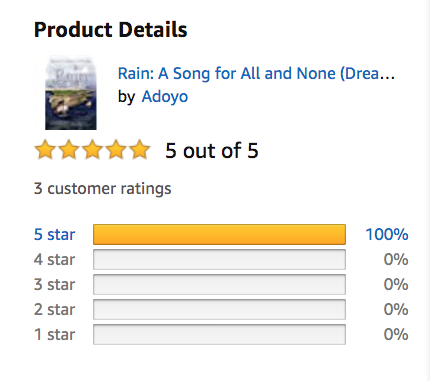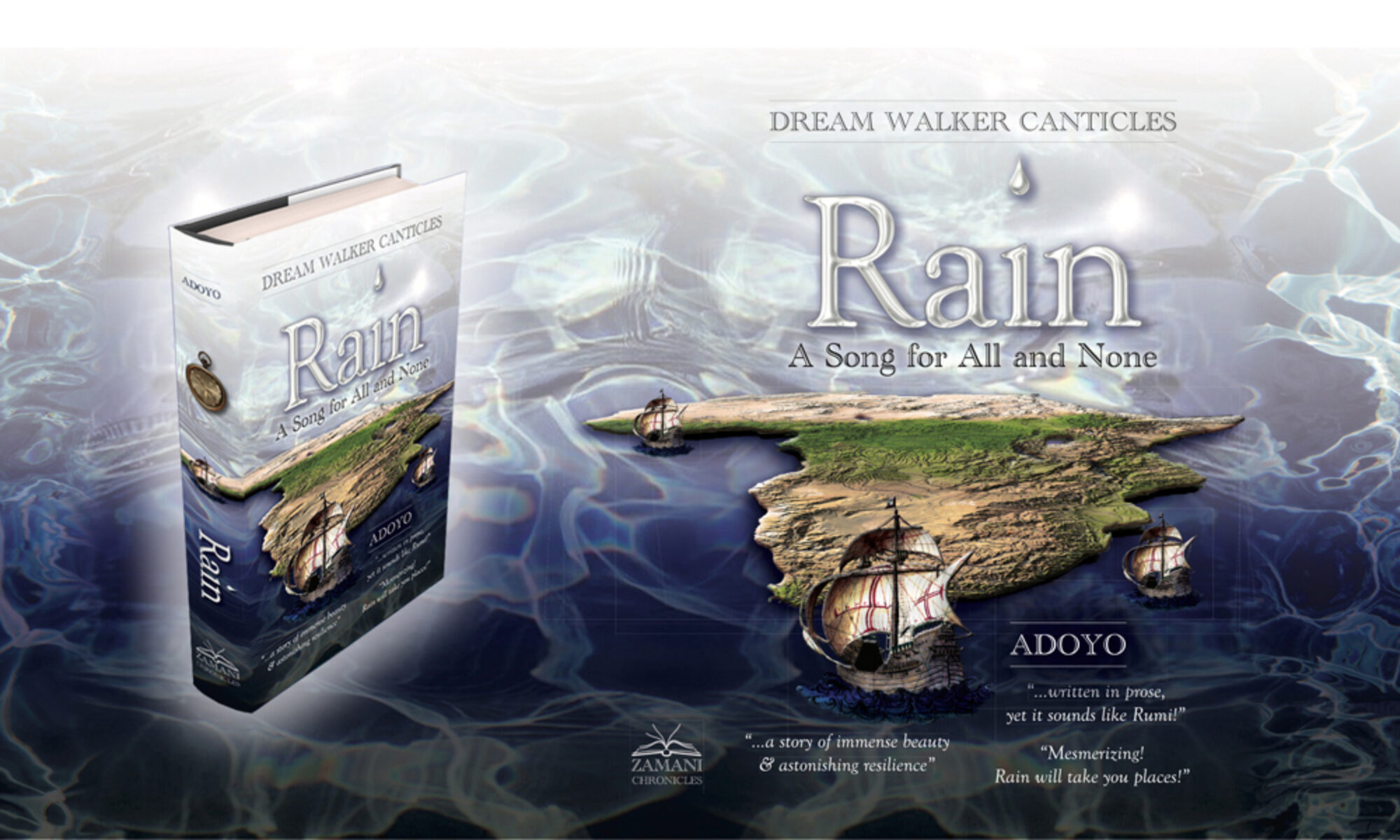
A narrative song to be savored – history as it should be.
Reviewed in the United States on June 19, 2020
Customer Review ADA
⭐️ ⭐️ ⭐️ ⭐️ ⭐️ 5.0 out of 5 stars
Glancing through the first couple dozen pages of RAIN I was instantly intrigued by the through-a-glass-darkly flavor of the tale, savoring the flow of Adoyo’s prose. As I took time to dwell with the book I devoured it, gulping it as I discovered your ability to sate a complex hunger for a tradition of telling I had never imagined. I was enchanted and deeply moved by the author’s verbal grace and descriptive-evocative condensation of intense joy and sorrow through many voices, awed by the web of breathtakingly intertwined lives she cast, delighted by the way music saturates the book in myriad ways, intellectually compelled by the truer-than-fact microhistories Adoyo raises to displace the glorified heroic men who chose to commit evil.
I want to read RAIN again, more slowly and carefully this time and letting it soak in, so I can better absorb the subtlety through which Adoyo leads the reader from dreamwalker haze to increasing understanding of the various intertwined protagonists and of the deep truths of their interactions that would simplistically be called “magical” from a European post-enlightenment perspective.
Highly recommended.

Adoyo CA Andrew Dell’Antonio — I was just showing this to my sister Grace Ajode’ Jibril this morning and she said something that surprised me, and made me sit up at attention: she said, and I quote:
“This is amazing: he describes reading your book the way you describe reading Dante.”
It took me a minute to digest what she had said and it made me wonder.
I never tire of revisiting Toni Morrison’s advice: “If there’s a book you want to read, but it hasn’t been written yet, then you must write it.”
From the very beginning, I was aware that Dante was my guide in the composition of RAIN; as of this moment, I have now spent MORE of my critical cognitive life thinking in “Dante” than not. In crafting the book that I wanted to read but could not find anywhere else, I purposely drew inspiration from everything I have learned and discovered about why and how he composed the Commedia. As I say in the Afterword of RAIN, this work is as much a tribute to the tradition of storytelling that my great-grandmother made so robust throughout my youth as it is responsive to the guidance of my “maestro and autore.”
My sister’s casual observation, based primarily on what she hears ME say about Dante, was quite eye-opening. I say all this here and now not because I nurse any presumption or delusion of parity with the Poeta, not at all. Rather, and in plain critical sight of “coloro che sanno” whom I have here invited to bear witness, I say this because the first complete thought I developed as I contemplated Grace’s comment was this:
“Da ch’ebber ragionato insieme alquanto,
volsersi a me con salutevol cenno,
e ‘l mio maestro sorrise di tanto…”
[“After they conversed a while,
they turned to me with signs of greeting,
and my teacher smiled at this.”]
In my mind’s eye, Grace’s comment transformed your account of your experience with RAIN into a magnifying glass zoomed in on Dante’s “salutevol cenno” — the Poeta’s magnanimous gesture of welcome to this acolyte to learn, and partake of wisdom, and assume the mantle of edifying in the service of Love and Justice.
I have no doubt that this will sound very over the top; but you offer such a rare and unexpected occasion to celebrate with you and through you that I can only beg the indulgence of everyone present even as I rejoice.
I only regret that I have not yet done enough to answer the call Dante sends to posterity.
Thank you for such an expansively generous account of your experience with RAIN, Andrea. Know that your words inspire me beyond measure. ✨??✨
_______________
Invited guests: [A number of Dante scholars]